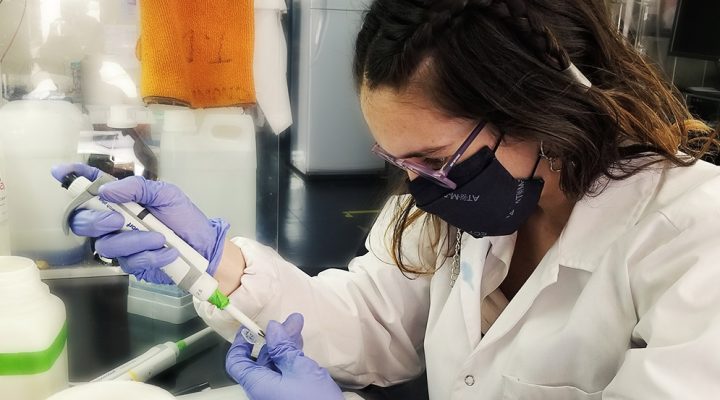BIOLOGICAL AND HEALTH SCIENCES
A biosensor to monitor the quality of water of the Matanza-Riachuelo Basin
Led by a CONICET scientist, the project aims at facilitating the detection of arsenic, nitrate, lead and other elements that have detrimental effects on health.
A research team of CONICET is working on the adaptation and validation of a biosensor easy to use, portable, accessible and capable of determining the quality of water that consume the inhabitants of the Matanza-Riachuelo Basin apart from helping to guarantee water security. It is one of the 147 selected projects for the call “Science and Technology against hunger,” of the national Ministry of Science, Technology and Innovation, as part of the National Plan Argentina against Hunger.
“The lack of access to drinkable water is a global problem and as it also affects part of the population of our country, we decided to focus on the development of technology to monitor the quality of this key resource for human life and validate it in the Matanza-Riachuelo Basin in coordination with other organisms that work in that territory,” explains explica Daiana Capdevila, head of the project and CONICET associate researcher at the Instituto de Investigaciones Bioquímicas de Buenos Aires (IIBBA, CONICET-Fundación Instituto Leloir).
The project is carried out in cooperation with the Autoridad de la Cuenca Matanza Riachuelo (ACUMAR), a government agency that for more than ten years has monitor the sources of water in the Matanza-Riachuelo Basin, in particular the areas that are not linked to network water.
During her postdoctoral stay at the Indiana University, USA, Capdevila and her colleagues of the Northwestern University developed a biosensor that cost one dollar and was called ROSALIND. It detected 15 contaminants in water, including metals such as copper, lead, zinc and cadmium; several types of antibiotics; and even elements present in makeup.
Now, Capdevila and her team work to extend the use of ROSALIND to detect different contaminants detrimental to health such as arsenic, nitrate and copper, and determine if the sample of water anis suitable for human consumption.
ROSALIND imitates a system of proteins that has bacterium to detect and defend themselves from metals. Before the presence of a contaminant, it exclusively produces molecules with observable green color at glance and that works as warning.
“The objective is to have the sensors in the field in one year. The validation will be jointly started with ACUMAR, which provides wide knowledge of the territory and is in contact with different organisms that can collaborate with this objective because the Matanza-Riachuelo Basin is constantly sampling,” Capdevila indicates.
“I have fallen in love with this project since the beginning. For me, it proves that making basic science in Argentina can help to solve the problems of the people,” she added.
For the design of this project, Capdevila received the National Award L’Oréal-UNESCO “For Women in Science” 2020 in the category Scholarship. The researcher also works with basic science to contribute to the development of effective therapies against multidrug-resistant bacteria that are on the World Health Organization’s priority list: Enterococcus faecalis, Acinetobacter baumanii y Streptococcus pneumoniae.
Other scientists who participate in the project are: Sofía Liuboschitz, thesis bachelor’s degree, and Matías Villarruel, CONICET fellow, both members of Capdevila team.
Source: FIL
